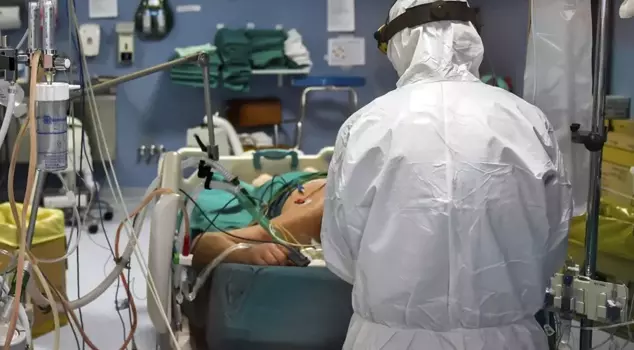
29.04.2025 17:43
According to research, the rate of heart attacks among individuals aged 25 to 44 increased by 30% with the onset of the coronavirus. Cardiovascular Surgery Specialist Prof. Dr. Mustafa Bilge Erdoğan stated that the majority of patients experience critical signals before a heart attack occurs.
Recent studies show that the rate of heart attacks among individuals aged 25 to 44 has increased by 30% alongside the coronavirus. Cardiovascular Surgery Specialist Prof. Dr. Mustafa Bilge Erdoğan stated that the majority of patients give critical signals before experiencing a heart attack. However, Prof. Dr. Erdoğan also warned that especially in diabetic patients and the elderly, heart attacks can occur without any warning signs. So, how does our body alert us before a heart attack? What lies behind the increase in heart attack cases in recent years? Why is early diagnosis important? Prof. Dr. Mustafa Bilge Erdoğan explained the curiosities related to heart attacks.
SYMPTOMS ARE OBSERVED IN ONE OUT OF EVERY TWO PATIENTS
Prof. Dr. Erdoğan noted that a significant portion of patients who experience a heart attack may have had some symptoms or risk signs beforehand; however, these do not always have to be clear or obvious. "In about 50-70% of patients, some warning symptoms may be observed days or weeks before a heart attack. These symptoms are generally findings such as chest pain, shortness of breath, palpitations, and fatigue. However, in about 25-30% of patients, a heart attack can occur without any prior warning. This is particularly more common in diabetic patients and the elderly. Additionally, approximately 10-20% of patients may experience a silent heart attack. Such patients may not even be aware of it. The crisis can be detected incidentally during an EKG or other imaging," he said.
CHEST PAIN THAT WAKES YOU UP AT NIGHT
Highlighting the symptoms of a heart attack, Prof. Dr. Erdoğan stated, "Chest pain or pressure that occurs with exertion, shortness of breath, decreased exercise capacity, pain radiating to the back, arm, or jaw, extreme fatigue, and chest discomfort that wakes you up at night generally say 'I am coming.' Moreover, if there are risks such as hypertension, diabetes, hypercholesterolemia, smoking, family history, and obesity, the risk is high even if there are no warning signs. Our findings also show that symptoms can vary in women. For example, discomforts such as nausea, fatigue, and back pain can present themselves."
HEART ATTACKS INCREASED WITH COVID-19
In recent years, an increase in heart attacks has been observed in Turkey and around the world. While there are many reasons for this, Prof. Dr. Erdoğan stated that the most significant one is COVID-19. "Recent findings show that the rate of heart attacks among individuals aged 25 to 44 has increased by 30%. Additionally, lifestyle plays a role. Factors such as decreased physical activity, unhealthy eating, and obesity during the pandemic have raised the risk of heart attacks. Genetic factors and familial hypercholesterolemia are also among the factors that increase the risk of heart attacks. Furthermore, it is possible to say that neglecting routine health checks due to the pandemic has led to delays in treatment for heart attacks. Considering all of this, early diagnosis is crucial in coronary artery (vascular blockage) diseases to prevent the disease from progressing to a heart attack. With early diagnosis, vascular blockage can be detected, and treatment can begin immediately. If intervention is made before the narrowing of the vessels progresses, the individual can continue their normal life for a long time," he explained.